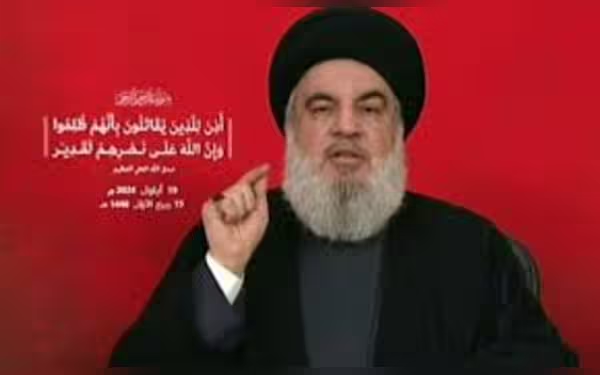Saturday, November 16, 2024 05:53 PM
Israel's Military Strategy Unveiled After Nasrallah's Death
- Israel's army chief confirms military options remain open.
- Operation against Nasrallah was meticulously planned and executed.
- Coordination among military forces is crucial for future operations.
 Image Credits: thefrontierpost
Image Credits: thefrontierpostIsrael's army chief asserts military options remain after Nasrallah's death, emphasizing strategic planning and coordination.
In a significant development in the ongoing conflict between Israel and Hezbollah, Israel's army chief, Lieutenant General Herzi Halevi, has made a bold statement regarding the military's capabilities and intentions. This comes in the wake of a recent airstrike in Beirut that reportedly resulted in the death of Hezbollah's leader, Hassan Nasrallah. The situation has escalated tensions in the region, as both sides remain on high alert.
Lieutenant General Halevi emphasized that Israel has not exhausted its military options, stating, "This is not the end of our toolbox." His remarks underline a commitment to ensuring the safety of Israeli citizens against any threats. The general's assertion reflects a broader strategy that Israel has adopted in dealing with perceived threats from Hezbollah and other militant groups.
Halevi further elaborated that the operation leading to Nasrallah's death was meticulously planned and executed with precision. He noted, "This attack was prepared for a long time, executed at the right moment with great precision, and now we are moving forward with careful preparation for the next steps." This indicates that Israel is not only reacting to immediate threats but is also strategically planning for future operations.
Moreover, the army chief highlighted the importance of coordination among various military forces, stating, "All forces, including coordination with other organizations, must ensure very good synchronization and readiness." This suggests that Israel is taking a comprehensive approach to its defense strategy, ensuring that all branches of its military are aligned and prepared for any eventuality.
The implications of these developments are profound. The death of a prominent figure like Nasrallah could potentially alter the dynamics of the conflict, prompting Hezbollah to reassess its strategies. It also raises questions about the future of Israeli-Hezbollah relations and the broader stability of the region.
As tensions continue to rise, it is crucial for both sides to consider the potential consequences of their actions. The situation remains fluid, and the international community is watching closely. Understanding the complexities of this conflict is essential, as it not only affects the immediate region but also has far-reaching implications for global peace and security.













